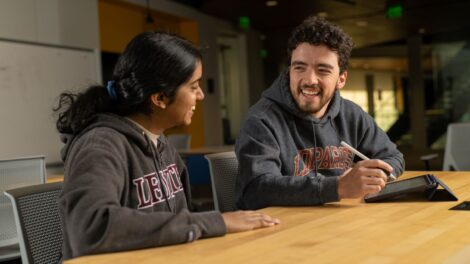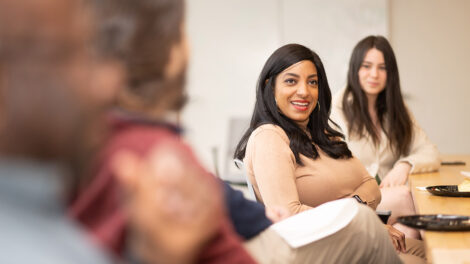Students make their best pitches during Dyer’s Big Idea Competition
By Bryan Hay
A nervous energy vibrated through the Dyer Center for Innovation and Entrepreneurship on the evening of April 18 as six student teams gathered to present their entrepreneurial ideas before peers and a panel of judges.
The six teams provided celebratory symmetry to the sixth annual Big Idea Competition, where students compete for a share of $3,000 in prize money by making 12-minute formal presentations about a for-profit or nonprofit business idea, product, or service. Each team provides data and pricing estimates, and identifies potential competition, funding sources, and sales projections, among other information, to support their pitches.
Welcoming this year’s slate of teams, judges, and guests, Tobias Rossmann, associate professor of mechanical engineering and Dyer Center interim director, described the Big Idea Competition as “one of the most exciting nights” on Dyer Center’s calendar.
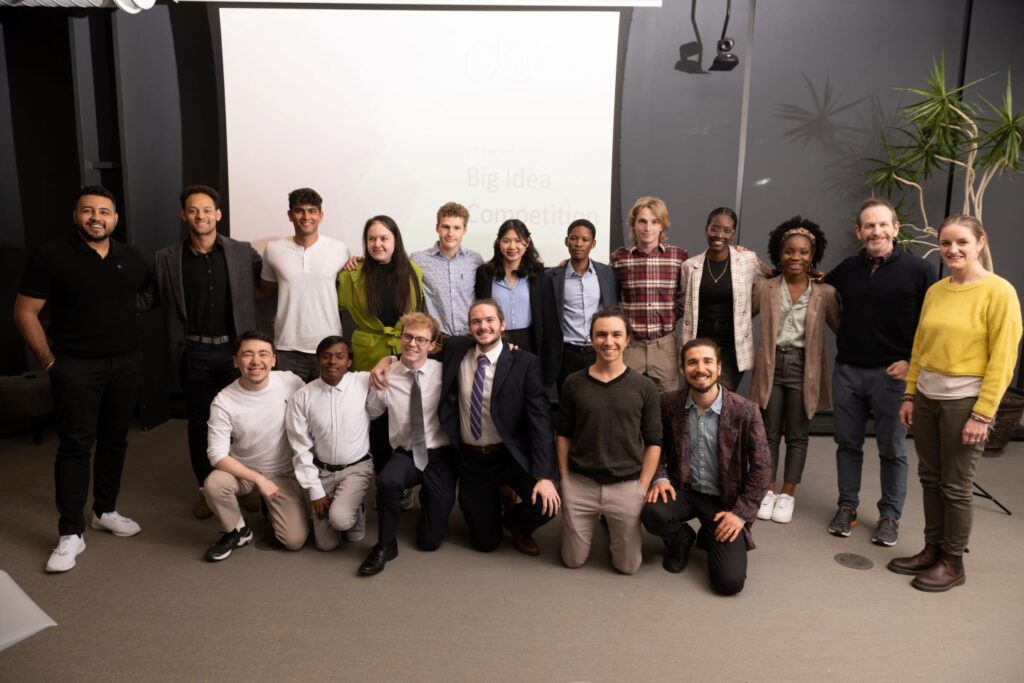
Six teams presented entrepreneurial ideas for the sixth annual Big Idea Center hosted by the Dyer Center.
Judging the teams and providing praise and pointed feedback were Chirag Nijjer ’20, a platinum customer success lead at Google, Dr. Chad Beyer, chief executive officer at Kures Inc., and Rachel Hogan Carr, executive director of the Nurture Nature Center.
Christopher Kirch ’26 (economics), Kashif Chopra ’26 (electrical and computer engineering), and Prem Kumar ’26 (mechanical engineering) took first place and $1,250 in prize money for their enterprise, Spotr.
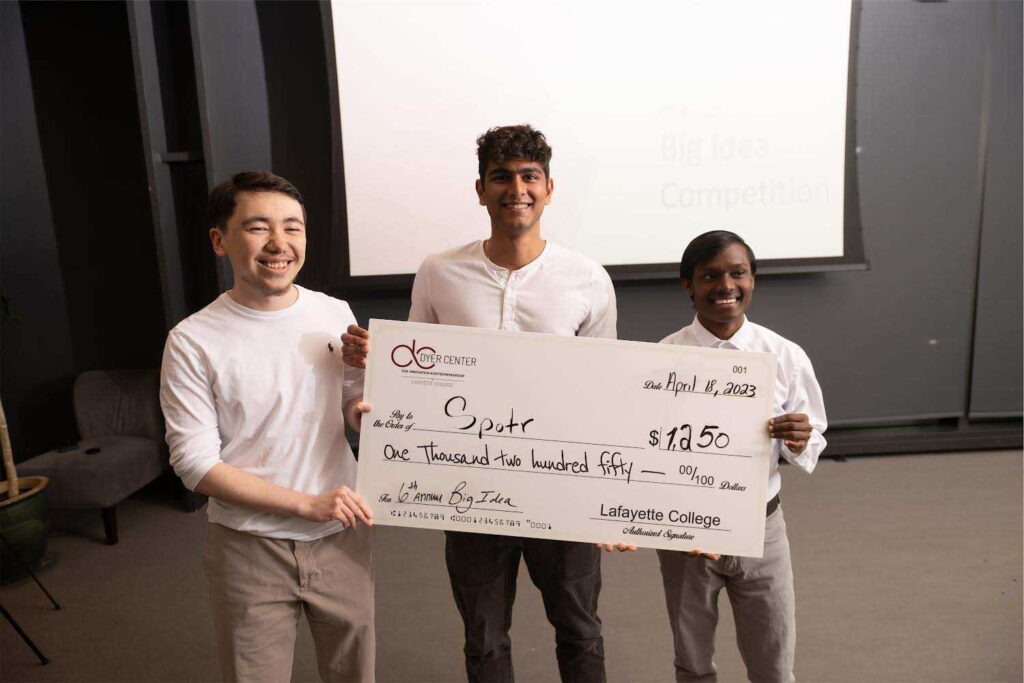
Spotr team took first place
Spotr aims to solve the problem of finding available study rooms on college and university campuses. The platform uses an intuitive user interface to display a map of the campus that allows students to view study rooms in real-time, using motion detection technology.
The team pointed out that finding study space at Lafayette is a challenge, noting 87% of students study at Rockwell Integrated Sciences Center, which consistently has a 97% occupancy rate. Their Spotr system would provide instant information about where to go or not go to find appropriate study space.
Second prize and $1,250 went to CeCe Kwenah ’24 (international affairs) and Milka Ininahazwe ’24 (mechanical engineering) for their Think Kids Liberia initiative, a reading/creative arts center for children ages 5-15 in Monrovia, Liberia, to address issues of reading illiteracy and to combine activities that make reading joyful and exciting for children.
Angela Busheska ’25 (electrical engineering and computer science) received third prize and $500 for her EcoGenius educational robot, which would revolutionize climate education for children. Employing a conversant robot, EcoGenius offers personalized learning, interactive storytelling, and climate games to empower climate action among children.
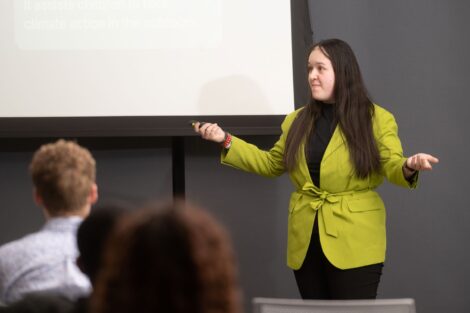
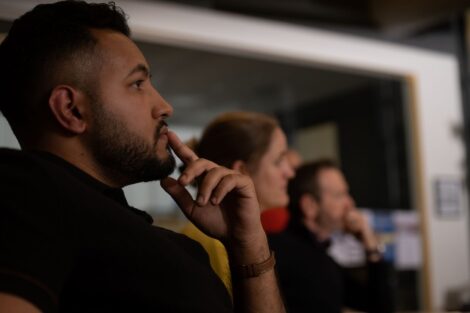
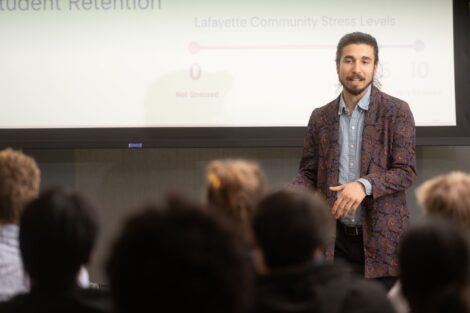
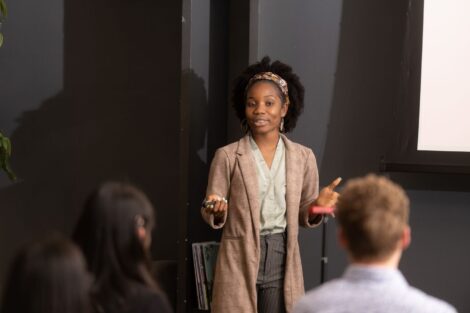
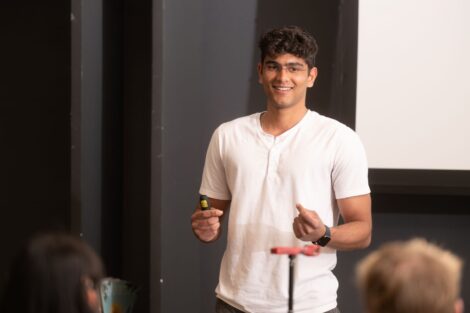
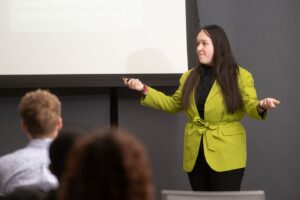
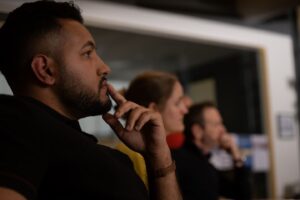
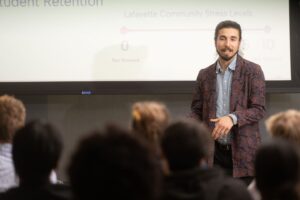
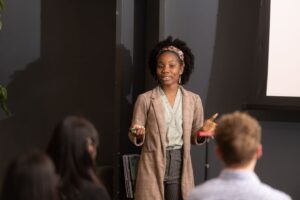
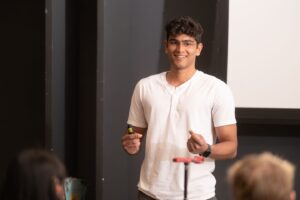
The People’s Choice award went to Claire Liu ’23 (computer science), Blake Hyatt ’25 (psychology and anthropology and sociology), Griffen Kempskie ’25 (neuroscience), and Cameron Schmidt ’25 (computer science) for their Tailor Tech, offering a suite of single-purpose Android tablets with simplified user interface designed for the elderly.
Also presenting were Remy Oktay ’24 (engineering studies and environmental studies), Jaden Stone ’24 (integrative engineering), and Alexander Vest ’25 (mechanical engineering) who pitched BranchOut, a venture that would bring tree swings to college and university campuses to improve student joy and mental health, foster prospective student interest, and connect local communities, among other benefits. The team is interested in patenting its technology, which helps ensure durability, using durable Osage orange hardwood, longevity, and swing usage tracking.
Don Bosco Haingura ’25 (engineering studies) and Corey Downey ’24 (film and media) offered Break, a product that automatically generates risk-adjusted trading opportunities in the foreign exchange, stock, and indices market using pre-scheduled macroeconomic events. Their idea is to help even the derivative trading playing field between powerful institutional investors and smaller, independent retail traders.
